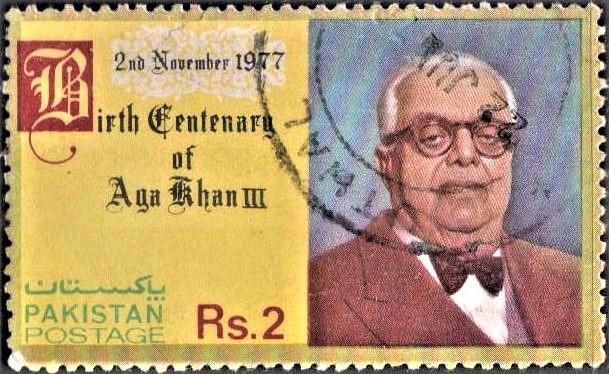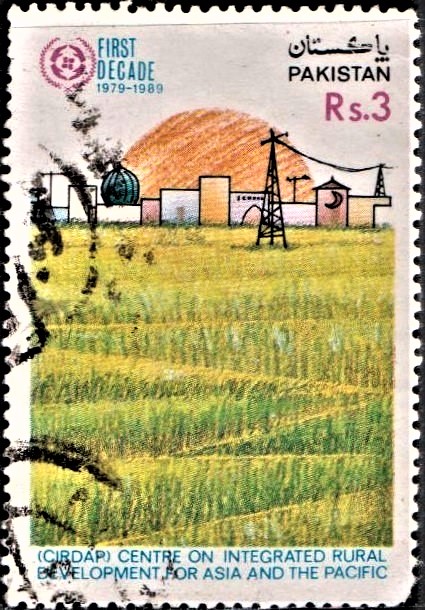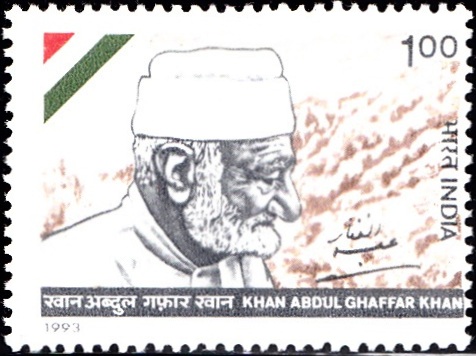
India on Aga Khan Foundation
A Miniature Sheet consisting of 2 nos of commemorative postage stamps on the 30th Anniversary of the Aga Khan Foundation in India :



 Issued by India
Issued by India
Issued on May 17, 2008
Issued for : The Aga Khan Foundation has completed 30 years of an extremely philanthropic and purposeful existence in India. The Department of Posts pays a tribute to its indomitable spirit in bringing out a set of two commemorative postage stamps highlighting different facets of the work of the Aga khan Development Network, namely their social commitment and their contribution to restoration of heritage and culture.
Credits :
Stamp & FDC : Brahm Prakash
Cancellation : Alka Sharma
Type : Miniature Sheet, Mint Condition
Colour : Multi colour
Denomination : 500 & 1500 paise
Stamps Printed : 0.8 Million, 0.8 Million
Miniature Sheet : 0.2 Million
Printing Process : Photogravure
Printer : India Security Press, Nasik
About :
- “It is well to give when asked but it is better to give unasked, through understanding.” – Kahlil Gibran, poet, writer and artist.
- The overriding driving force behind charity is an unbounded love for mankind, an all-embracing spirit of compassion that propels one to reach out to the underprivileged. And like Kahlil Gibran reflected, the most sublime form of giving is giving entirely of one’s own volition.
- Standing tall against the international firmament of charity organizations is the Aga Khan Foundation (AKF) that has voluntarily embarked upon the path of giving, exhibited sagacious comprehension of problems and issues that challenge civil society and developed incisive mechanisms to deal with them. Founded by the Aga Khan in 1967 at Geneva, Switzerland the Aga Khan Foundation is part of the Aga Khan Development Network, a group of nine institutions working in health, education, culture, rural and economic development. Established in India in 1978, the Aga Khan Foundation currently functions in 18 countries across the world spanning Central and South Asia, the Middle East, Sub-Saharan Africa, Europe and North America. It seeks sustainable solutions to long-term problems of poverty, hunger, illiteracy and ill-health with special emphasis on the needs of rural communities in mountainous, coastal and other resource-poor areas.
- The success of the organization is largely due to adoption of an integrated, community-based, participatory approach that reflects an understanding of the local culture. Benjamin Jowett, the noted English classicist and theologian had said, “To teach a man how he may learn to grow independently, is perhaps the greatest service that one man can do another”. Taking a cue, the four central objectives of Aga Khan Foundation are to make it possible for poor people to act in ways that will lead to long-term improvements in their income, health, environment and education of their children; provide communities with the understanding necessary to take informed action; enable beneficiaries to gain the confidence and competence to participate in the design, implementation and operation of activities that affect the quality of their lives; and put in place management and financial structures ensuring that programme activities within a reasonable time frame.
- Sterling examples of this approach lie in the work carried out by the Foundation among women of the Siddi community in Gujarat that has enabled them to gain financial independence primarily through training imparted to them in producing organic compost. Further, Aga Khan Foundation has supported rural development programmes in India since the early 1980s. During 2006, in Jammu and Kashmir, over 25 masons were trained in earthquake-resistant construction techniques and six were contracted to provide regular technical guidance in programme villages. The Foundation engaged local communities in the management and delivery of health care through the “social franchise agreement”. Similarly, small and marginal farmers of South Gujarat were helped to become self-reliant by establishing a “library” of agricultural tools and equipment from which they could rent the same at nominal rates liberating them from the shackles of exorbitant hiring that mitigated their earnings to meager levels.
- Text : Based on Material provided by the proponent.







